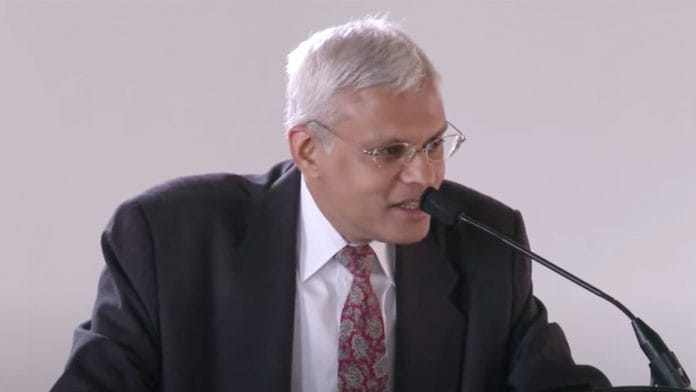New Delhi: Ashley Tellis, a highly regarded international relations scholar who played a key role in shaping the historic India-United States Nuclear Agreement of 2003, has been arrested for allegedly illegally acquiring secret documents from a special classified depository. Federal Bureau of Investigation officer Jeffrey Scott, who is investigating the case, has suggested in court filings that Tellis may have passed down documents to People’s Republic of China officials on at least one occasion.
Tellis holds the Chair for Strategic Affairs at the Carnegie Endowment for International Peace, and is regarded as a leading authority on international security, defence, nuclear and Asian strategic issues. He is the author of Limited Conflict Under the Nuclear Umbrella with C. Christine Fair, and India’s Emerging Nuclear Posture.
For reasons that are not clear from the legal documentation released so far, Tellis was placed under FBI surveillance, starting at least October 2022. Agents watched as diplomats from the People’s Republic of China handed over a gift bag to Tellis.
A manila envelope brought by Tellis to the meeting was no longer visible when the group left, the FBI has alleged. The FBI does not say if any classified material was in the envelope.
Tellis is said to have held further meetings with PRC’s diplomats in April 2023, March 2024, and September 2025. Although the men could be heard discussing a range of topics, from the uses of artificial intelligence as well as China-Iran relations.
Following Telllis’s meeting with the PRC diplomats in early September, court filings reveal, the FBI appears to have stepped up its monitoring of the scholar’s work in a secure classified information facility at the Mark Center, a Department of Defence facility located at 4800 Mark Center Drive at Alexandria, in the state of Virginia.
Tellis was videotaped entering a cubicle in the facility, the FBI states, where a junior colleague had already printed out multiple documents, including one marked “Top Secret”. Later, on 25 September, Tellis used the US State Department’s own classified information system to access a file discussing combat aircraft used by adversaries.
For reasons that are unclear, Tellis renamed this document “Econ Reform”, and attempted to print pages 72-159. The pages did not print, however. Tellis then printed out large amounts of unclassified material, the FBI says, before returning to the task of printing the combat aircraft files.
Later surveillance, the FBI claims, revealed Tellis to be hiding printed pages of classified information among his notepads, and carrying them home. Searches conducted at Tellis’s home, the FBI alleges, led to the recovery of over 1,000 pages of classified documents, even though it remains unclear what their actual strategic value might be.
In recent months, multiple American officials—including President Donald Trump and former President Joseph Biden—have been investigated for retaining classified documents in their homes. Guidance issued in 2024 by the Department of Justice, however, had concluded Biden’s actions did not warrant prosecution.
Former US diplomat Robin Raphel was also investigated for espionage for Pakistan, but was cleared after the FBI conducted a more granular examination.
Though Tellis’s intellectual eminence, and his key role in India-United States nuclear weapons negotiations, will likely give this case considerable prominence, the scholar is not the first Indian-American charged with spying for China. Noshir Gowadia, a Mumbai-born engineer who played a key role in designing the B2 bomber propulsion system, had received a 32-year prison sentence earlier this year for selling secrets to the PRC.
Future FBI disclosures will likely seek to cast light on exactly what secrets Tellis is alleged to have sold, and his motives for doing so. Tellis, close friends in Washington D.C. said, did not appear to be facing financial or professional problems, and was spending a part of this year at a lakeside home in Italy.
Tellis had long been seen as an advocate for India’s strategic growth, but in one recent article, had expressed pessimism about the prospects that it would emerge as a true counterweight to China.
(Edited by Mannat Chugh)
Also Read: Pakistan made chamchagiri its foreign policy — the brown man bowing before white sahib






